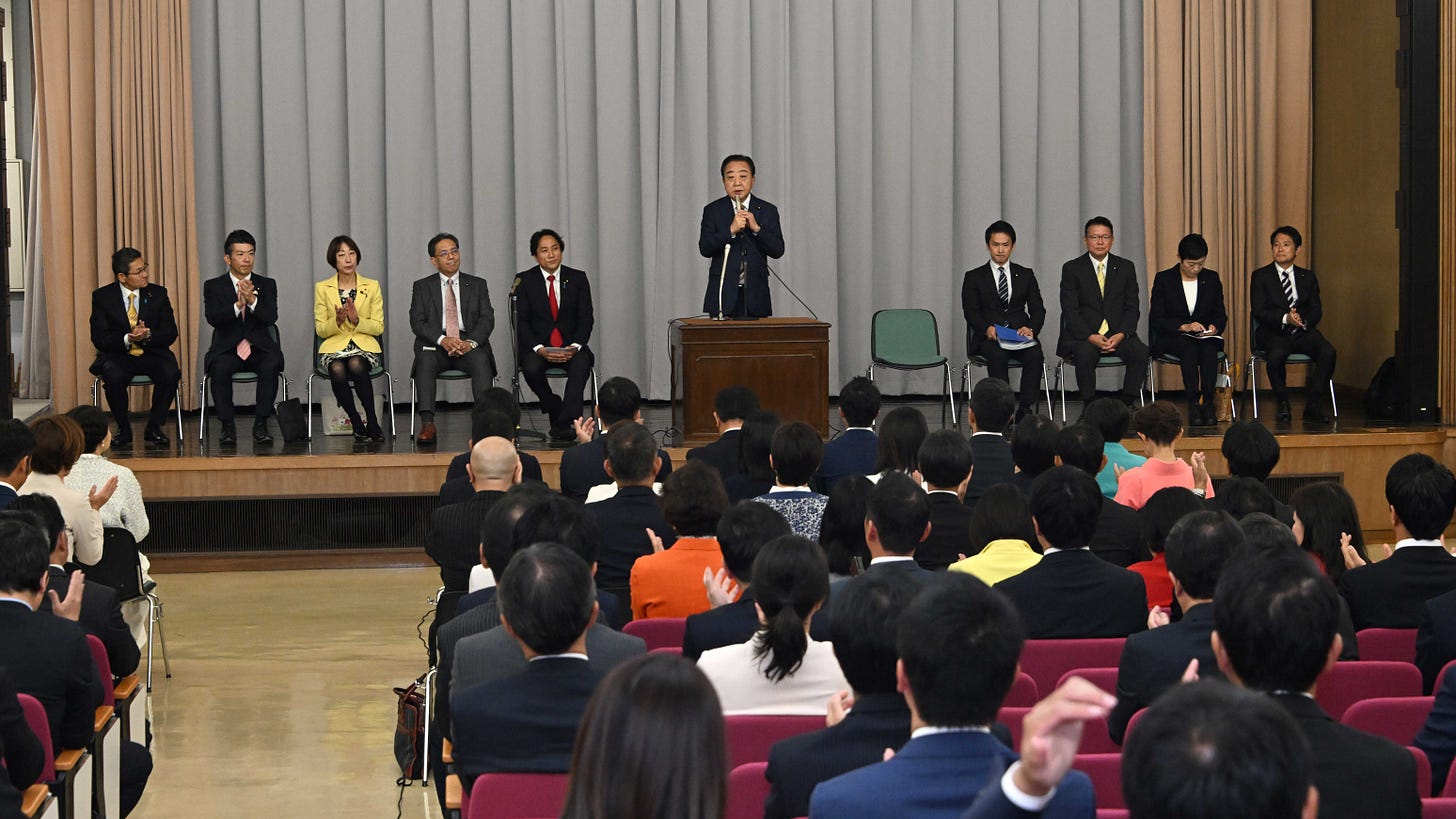Thank you for reading Observing Japan. This post is available to paying subscribers.
If you are looking for timely, forward-looking analysis of the stories in Japans’s politics and policymaking that move markets, I have launched a new service through my business, Japan Foresight LLC. For more information about Japan Foresight’s services or for information on how to sign up for a trial or schedule a briefing, please visit our website or reach out to me.
My apologies for lighter-than-usual posting this week. I arrived in Tokyo today for week-long trip after a short trip to Hong Kong. Posting may continue to be light depending how much time my schedule — and jet lag — permits me to write.
Otherwise, I spoke with Jacob Shapiro of the Jacob Shapiro Podcast about Japan’s politics. You can listen to the episode below.
Meanwhile, the Nikkei Shimbun published an interview on the broader question of political reform in Japan. It is available in Japanese here.

In the weeks since Japan’s general election, in which the Liberal Democratic Party (LDP) and Kōmeitō lost their majority in the House of Representatives and embarked upon a new era of minority government, there has been considerable focus on the LDP’s and Kōmeitō’s negotiations with the Democratic Party for the People (DPFP). The DPFP, with twenty-eight seats in the lower house, is the most plausible partner for the Ishiba government as it seeks to ensure it has the votes to perform the most essential task for the government, moving budgets, and it therefore makes sense that these negotiations have attracted significant attention.
But while the government parties are still working on policy concessions to ensure that they have the votes to pass legislation, the LDP may have already made its most significant concession to the opposition when, in the new House of Representatives, it acceded to the Constitutional Democratic Party’s (CDP) demand for the chair of the lower house’s budget committee along with the other committee chairs that are its due based on the new distribution of seats.
To the layperson, the significance of this concession might not be immediately apparent. But the lower house’s budget committee may be the single most important legislative institution, and ceding the committee to the CDP – which promptly named veteran lawmaker Azumi Jun as the chairman – was a dramatic recognition on the part of the LDP that the “2012 system” is over. In place of the effective fusion of executive and legislative branches – large parliamentary majorities enabling LDP-led governments to use executive authority to manage the policy agenda and the legislative calendar – is what might be called Japanese-style “co-habitation,” with the Ishiba government ceding significant power to shape the legislative agenda to the opposition.
Keep reading with a 7-day free trial
Subscribe to Observing Japan to keep reading this post and get 7 days of free access to the full post archives.



